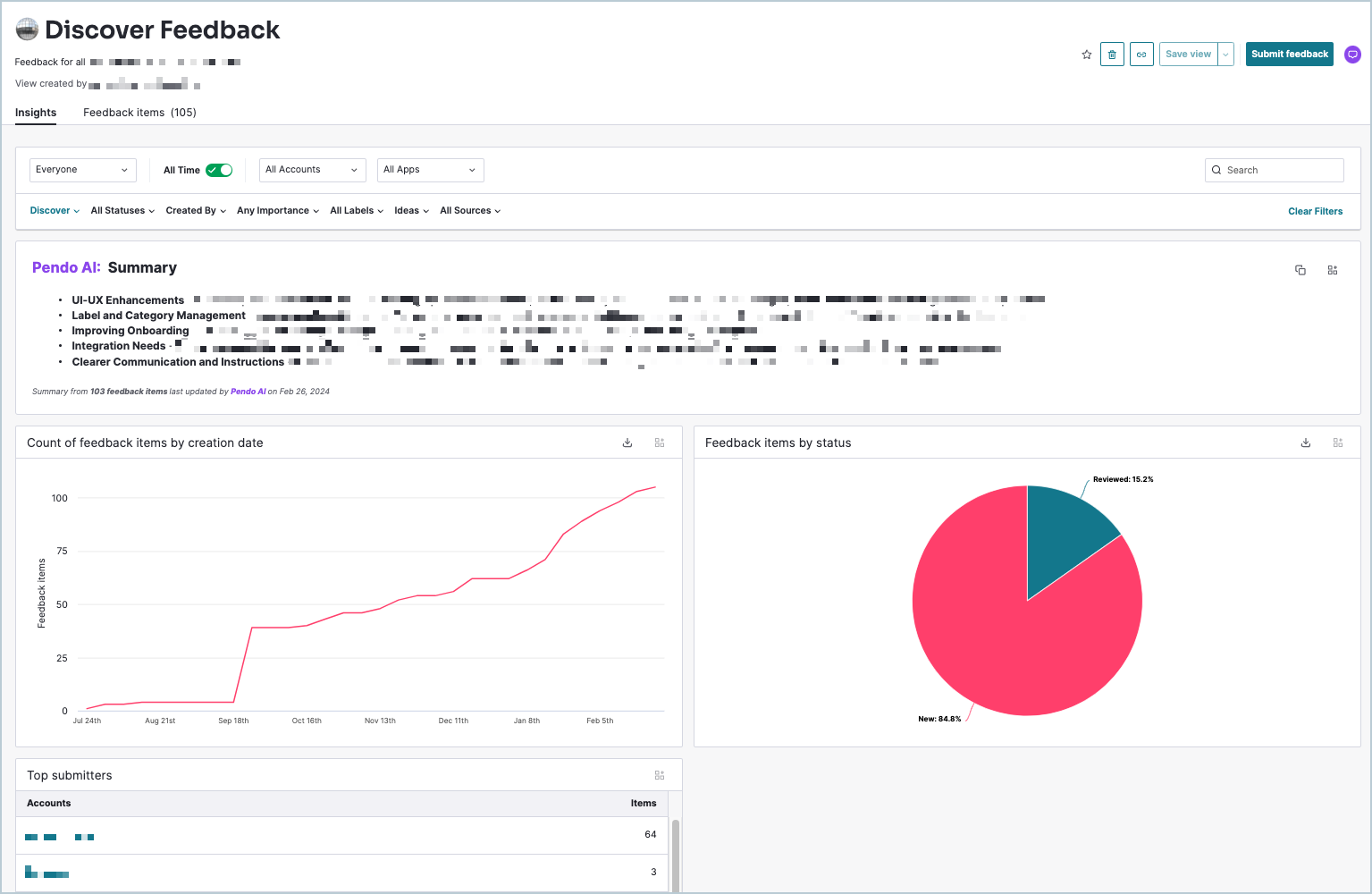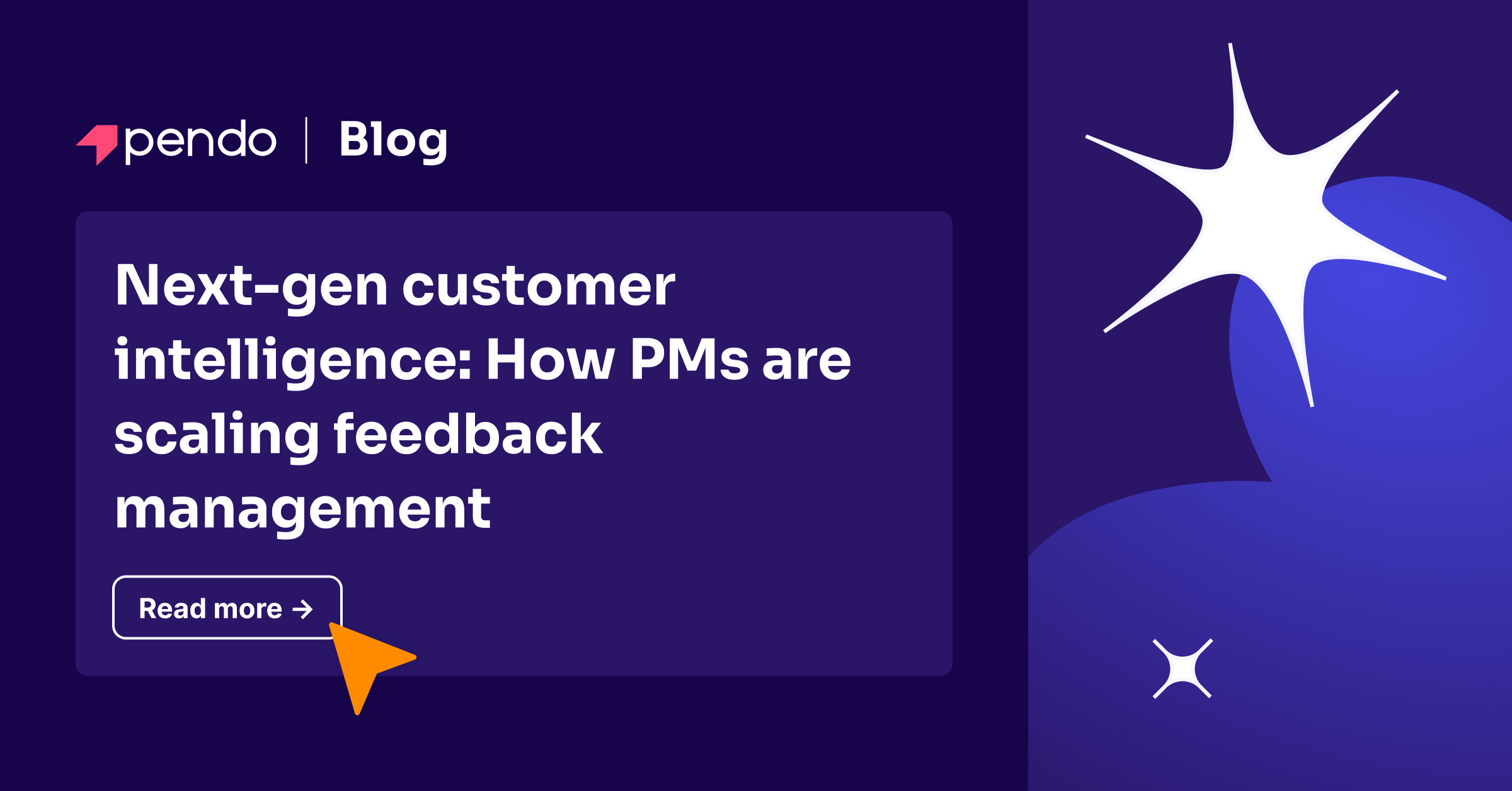How you collect and manage user feedback has evolved—and your customer intelligence tools need to keep up.
When you give customers a channel to communicate with you, they’ll tell you everything. Ask your customers which features they’d like to see in your roadmap for one product area, and they’ll tell you about bugs in another.
Managing user feedback is an enormous responsibility. If there’s one person responsible for triaging feedback or one person responsible for following up with customers, that customer intelligence program will fail.
Product managers need to understand high-level problems and granular gaps with your application’s existing features and user experience (UX).
With so much noise to sort through, PMs need to offload feedback management onto AI-powered tools. These tools also mean PMs will spend less time actually building products and more time giving instruction around what to build. AI tools are just like technically proficient individual contributors: They depend on your guidance to successfully build, refine, and launch your work.
By leveraging AI-powered tools, product teams can centralize feedback from various channels, automatically extract insights, and cluster them into common topics. This allows product teams to listen to lots of feedback simultaneously, regardless of volume or format, and get notified of new emergent trends.
Customer intelligence tools are evolving
Successful feedback management is only one stage of your product discovery workflow. For successful products, this data needs to be interconnected to idea validation and roadmapping.
For the longest time, Pendo’s classic Feedback gave product teams all the tools they needed to capture, review, and manage requests in-app. PMs could sort data manually and filter through requests, and end-users could vote on feedback items. But the way product teams build has evolved, and best practices have changed.
The best teams now perform continuous discovery, validation, and planning to build what matters most to their customers.
Listen replaces our classic Feedback product with new features and AI tools to go beyond capturing and analyzing feedback. Along with AI-powered feedback management, Listen includes Validate and Roadmaps. These features combined provide everything you need to build with more confidence and accuracy.
Here’s a high-level overview at what’s changed:

‘Customer intelligence’ is replacing ‘Voice of the Customer’
The set of feedback tools included in Listen are designed to replace (and surpass) the workflows found in classic Feedback.
See how you can listen to users and validate ideas—at scale
Take a tour
With Listen, you no longer have to manually sift through and organize each piece of user feedback. Instead, Listen uses AI-powered summaries to surface high-level trends and critical insights—without all the laborious triaging.

Today, Listen includes:
- Feedback summaries: Rather than manually analyzing qualitative data, you can let Pendo’s AI assistant create summaries of emerging themes via views and edit this to suit your needs.
- Theme identification: Regardless of whether you manually send guide responses to Listen or import responses in bulk, Pendo automatically creates titles based on the response description for each feedback item created.
- Suggested ideas: Pendo’s AI assistant suggests ideas you can link to feedback items in Listen, and you can accept (or reject) these linking suggestions.
Our team is continuing to invest and bolster the AI and automation capabilities within Listen. Soon, we’ll start to incorporate additional AI capabilities thanks to our recent acquisition of Zelta AI.
With AI and automation leading the charge, managing qualitative feedback at scale becomes not just feasible but integral to continuous discovery and building customer-centric products. Pendo Listen doesn’t just simplify feedback collection—it elevates your entire product discovery workflow by enabling smarter decisions, faster execution, and deeper connections with your users.
As customer intelligence evolves, so should your approach to feedback. With Listen, your teams can focus on what they do best: building the future their customers want to see.
Listen’s new and improved customer intelligence tools are here to help you manage more feedback, no matter its structure or scale. Learn how our customers used Listen, or explore our guide to AI-powered product discovery.
Gaming Center
A gaming center is a dedicated space where people come together to play video games, whether on PCs, consoles, or arcade machines. These centers can offer a range of services, from casual gaming sessions to competitive tournaments.
